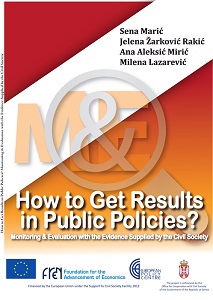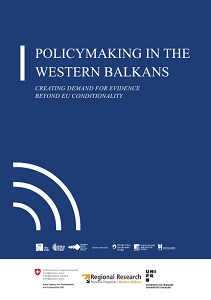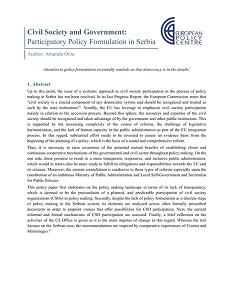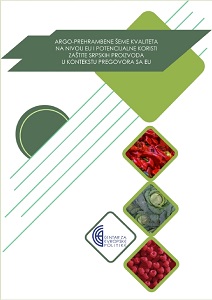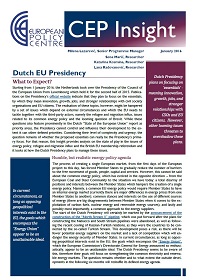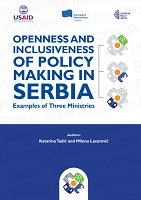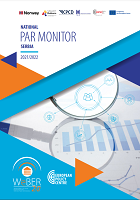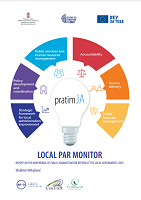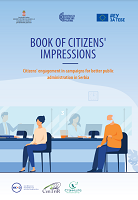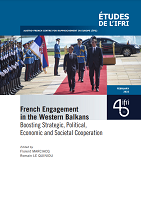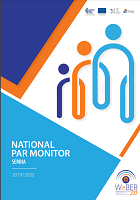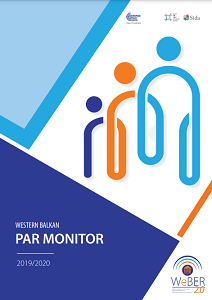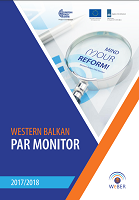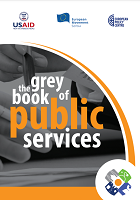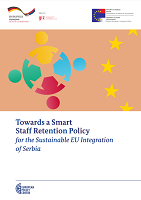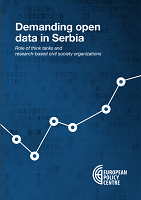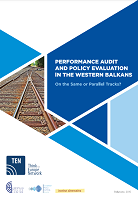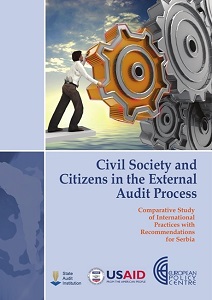
CIVIL SOCIETY AND CITIZENS IN THE EXTERNAL AUDIT PROCESS. Comparative Study of International Practices with Recommendations for Serbia
CIVIL SOCIETY AND CITIZENS IN THE EXTERNAL AUDIT PROCESS. Comparative Study of International Practices with Recommendations for Serbia
Keywords: state-audit; civil society;
The aim of this Study is to provide the most appropriate solutions to the State Audit Institution of Serbia for the inclusion of citizens in the external audit process as well as to provide sustainable and more institutionalized forms of cooperation with civil society organizations. The Study adopts a comparative approach in its thorough analysis of European and non-European experiences and existing domestic institutional practices. A qualitative methodology was adopted in the form of a combination of primary and secondary sources, i.e. data collection was conducted through in-depth semi-structured interviews, electronic questionnaires, and the analysis of legislative and institutional frameworks and practices in regards to citizens’ cooperation in external audit process and cooperation of supreme audit institutions with the civil society. The methods applied proved as adequate in terms of analyzing comparative practices in the chosen systems and for getting a broader insight of the examples in the areas of transparency and government accountability, and more specifically in external audit, across a variety of states.
More...
